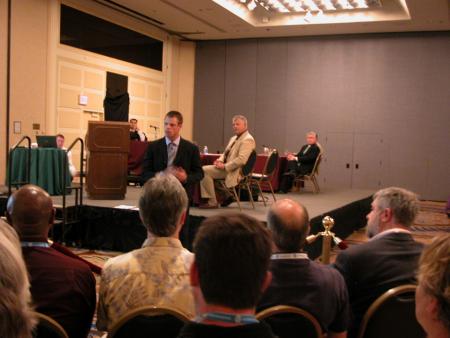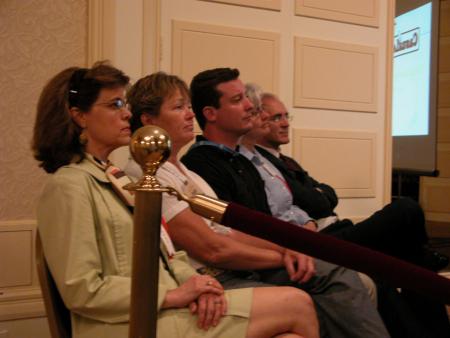John Ciarametaro experienced his own ‘Perry Mason moment’ recently. It happened when Legal Seafood’s manager of Lab and Inspectional Services served as a juror during a mock trial of typical food safety litigation.


“I attended the annual National Environmental Health Association conference in Atlantic City (NJ),” he explained, “which fulfills the continuing education units necessary to maintain my REHS/RS certification.” The conference is attended by virtually all branches of public health professionals, and includes the usual array of lectures, workshops, seminar, and technical presentations.”
But this mock trial was a pretty cool way of dramatizing and bringing to life the realities of failures in the food safety system.
John Ciarametaro
“Along with Ellen Schroth (Legal’s food safety and sanitation auditing consultant for the Mid-Atlantic region), I spent an afternoon playing one member of a jury pool. We listened to final arguments, presented by real lawyers, using real facts drawn from common cases.” The prosecutor and defense attorney were played by lawyers from MarlerClark which is the high-profile firm best known for handling foodborne illness cases, especially the notorious Jack-in-the-Box contaminated meat frenzy in the 1990s. The ‘judge’ for the mock trial was portrayed by a lawyer from the host hotel, the Tropicana.
“This exercise was treated exactly like a real trial,” said Ciarametaro. “We were sequestered for part of the time; we heard about the illness outbreak; we heard testimony from both plaintiff and defendant then rebuttal; then we filed into the jury room to begin deliberations and eventually come up with a verdict.” The case concerned a food worker who was an asymptomatic carrier for Salmonella. She was infected by her roommate, but showed no symptoms herself. The situation was a clear illustration that is possible to be a carrier of a pathogen even though you yourself are not sick. In this case, the food worker did not properly wear gloves during food prep, and managed to pass along the illness to an unsuspecting customer.
Ciarametaro’s fellow ‘jurors’ were conference attendees like himself, representing academia, industry, and regulatory agencies, industry, and regulatory agencies. “I found myself really conflicted,” he confessed. “We ultimately found for the plaintiff – the party who’d been made ill by the contaminated food. But I also understood the position of the defendant – the restaurant charged with the offense. It was really hard to point the finger of blame and to absolutely say yes, the restaurant messed up and caused this problem. So much of the case was circumstantial evidence, not undisputed facts and figures. But following this judge’s instructions on such evidence, we had to award for the plaintiff, in the end.”
The experience underscored for Ciarametaro the absolute importance of following food safety guidelines at every level. “It really hit home. I learned so much about what can go wrong, and how devastating even small mistakes can be,” he said. “There’s a lot of wiggle room in the term ‘reasonable care.’ And for a plaintiff to prevail, you have to prove three things: that there was a food defect, that the victim incontestably was sick or injured. As a jury, we managed to come to a majority opinion, but certainly not a unanimous one.”
No matter what new tricks, techniques or technology develop, there will never be a substitute for the old-fashioned basics of frequent, thorough handwashing, attention to personal hygiene, and enforcement of sanitation codes, Ciarametaro said. “Those issues are just extremely important,” he stressed.
All employees handling raw and prepared food must be thorough and diligent. Until you sit through a trial like this, you just don’t fully appreciate the magnitude of grief and hardship that can come from careless behavior in the workplace.
John Ciarametaro
This trial was presented by the Handwashing For Life Institute with the case study written by the MarlerClark team led by Denis Stearns.
Strict Liability
A legal term meaning that the injured person need only prove:
- I was injured,
- the product was defective, and
- the defect caused the injury.
It is not necessary to prove negligence, and neither good faith nor the fact that the defendant took all possible precautions are valid defenses.
Reprinted from “The Legal Ledger, August 2007”
with permission of Legal Sea Foods, Inc.
http://www.legalseafoods.com

